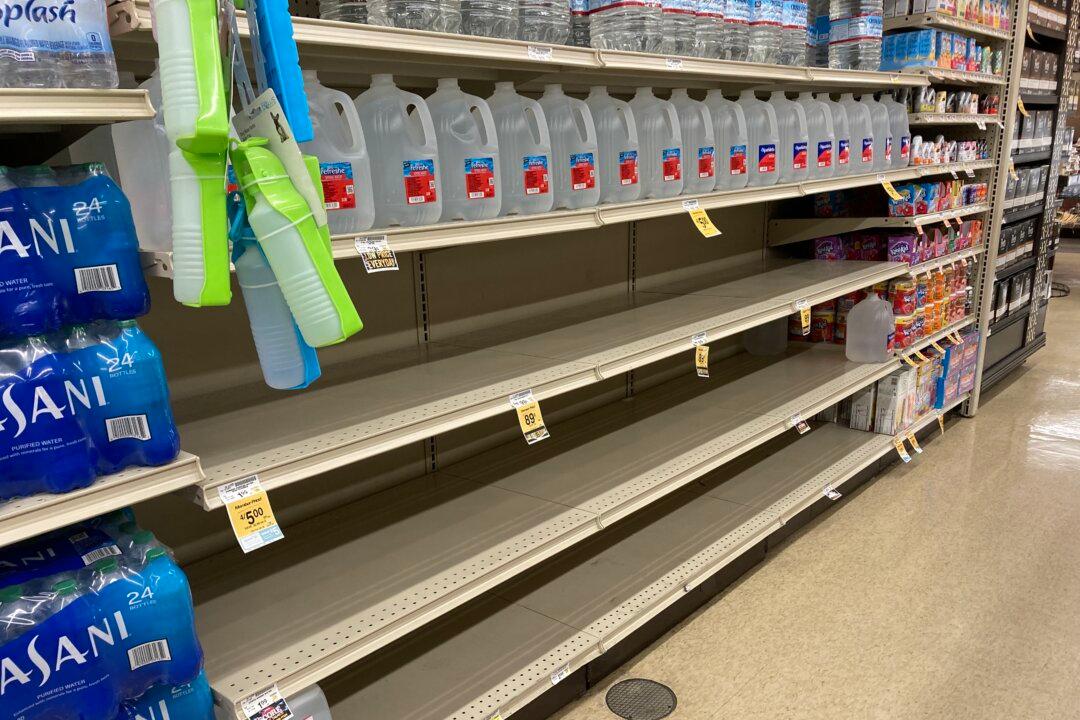More than half of American likely voters said they are facing delays or shortages when buying consumer goods, according to a recent poll.
Nearly 54 percent of respondents affirmed the problem, while less than 36 percent denied it. A bit over 10 percent weren’t sure, according to the poll by Trafalgar Group.





